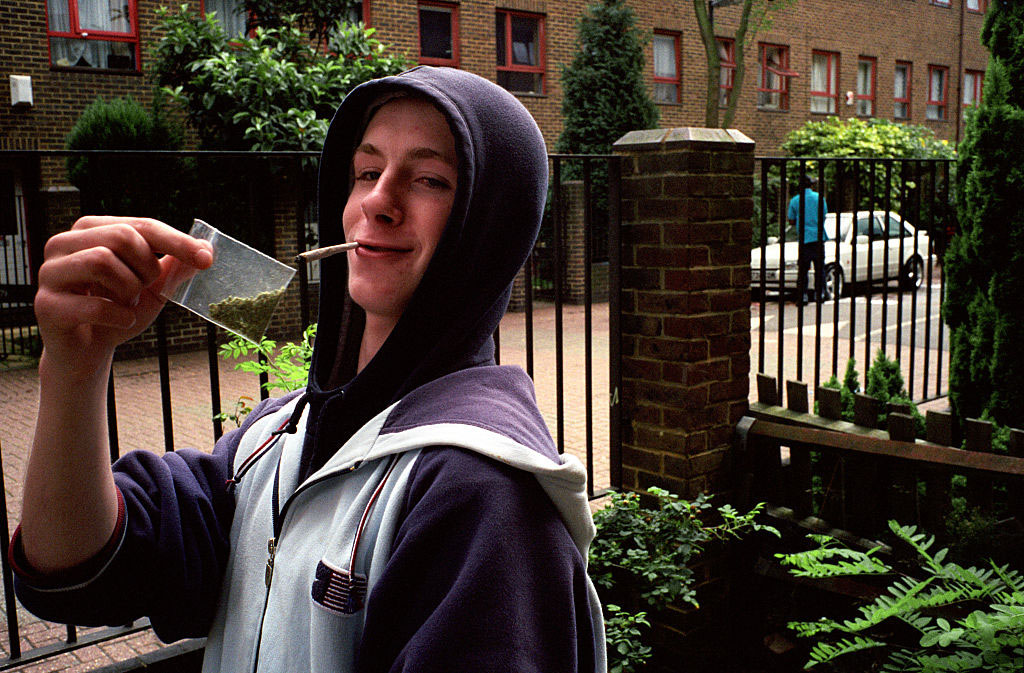The federal Liberals’ cannabis legislation should not be passed in its current form, argues a strongly worded editorial in the Canadian Medical Association Journal.

“The purported purpose of the act is to protect public health and safety, yet some of the act’s provisions appear starkly at odds with this objective, particularly for Canada’s youth,” the editorial argues. “The government appears to be hastening to deliver on a campaign promise without being careful enough about the health impacts of policy.”
Young adults’ brains are developing until the age of 25. Some studies (but not others) seem to show that marijuana use harms the developing brain.
READ: Stoner Sloth tells Australian teens ‘you’re worse on weed’ in anti-marijuana campaign
Diane Kelsall, the journal’s editor-in-chief, argues that the national minimum age of 18 in the legislation implies that it’s a good idea to consume pot at that age.
“Obviously one of the points of the legislation is to try and keep kids away from entering the criminal justice system. But there’s a certain message that comes across when you say something is legal. If you say that it’s fine at the age of 18, you’re sending a message that it’s OK. And we know that it’s not OK.”
READ: Study questions link between teen pot smoking and IQ decline
“We know from studies that youth who use marijuana – it changes their brains. We know that there are associations – not causality – we know that they don’t do well in school, that they have an increased risk of dependency. We know that it’s linked to cigarette smoking, it’s linked to other dependencies, it’s linked to neurological problems, learning problems, dropouts, and ultimately reduced lifetime achievement.”
READ: Will teens smoke more pot when it’s legal? They didn’t in this U.S. state
The Liberals were elected in the fall of 2015 on a platform of legalizing recreational marijuana. A task force set up to look at the details of legalization published its report last November. In April, the Liberals unveiled a legislative package for legalization, and promised that a legal distribution system will be up and running by the end of June 2018.
Kelsall also takes issue with the bill’s proposal to allow limited home grows (no more than four plants per household, not more than a metre tall.)
“Nobody’s going to be going into people’s houses and measuring 100 centimetres,” she argues. “We know that.”
“Basically we’re going to have uncontrolled pot growing in the country. The risk of diversion is huge.”
“If there’s a 100-centimetre limit, they’re going to be working on shorter cultivars, growing things horizontally, and so we’re going to see major pot being able to be produced in a person’s home.”
READ: Teens turn to marijuana to self-medicate for stress, anxiety: report
The editorial also questions the government’s decision not to try to control the potency of recreational marijuana under legalization, and to leave the details of distribution up to the provinces.
If it was up to her, Kelsall says, recreational marijuana wouldn’t be legalized at all.
“I’m very concerned about what marijuana can do. As a physician, both personally and professionally, I’ve seen lives completely derailed by marijuana use. Teens getting hold of it, becoming dependent, gateways to other drugs.”
READ: Teen girls more than twice as likely to smoke weed if they’re pregnant: U.S. study
WATCH: Health officials in Australia have turned to a human-sized sloth in effort to raise awareness among teens “of the risks and consequences of using recreational cannabis.”


Comments